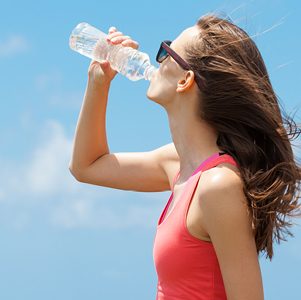Many Australian’s have to deal with the unpleasant symptoms of nasal congestion and hay fever. What exactly what is it? And what can you do to reduce its impact on you?
What is nasal congestion? Nasal congestion occurs when the membranes inside your nose become inflamed. When this happens, the nasal passage narrows and makes it harder to breathe.
What causes nasal congestion in spring? Seasonal allergies (hay fever) are a common cause of nasal congestion. Allergic reactions tend to occur when the body’s immune system mistakes an allergen for a dangerous substance. When this happens, the body launches an ‘attack’ and tries to trap the substance by producing excess mucus.
What can you do about nasal congestion? If you’re not sure what you’re allergic to, talk to your GP about having an allergy test. It’s also a good idea to wash your hands and face regularly, avoid rubbing your face, and dry linen inside away from outdoor allergens.
The Australian Society of Clinical Immunology and Allergy (ASCIA) website lists a range of treatment options for nasal congestion caused by allergic reactions. These include antihistamine tablets, syrups and nasal sprays, decongestant medications, and even natural products such as salt water nasal sprays. While many nasal congestion and allergy medications are available over the counter, it’s always a good idea to talk to your doctor or a pharmacist to find out if they are right for you.
What is hay fever?
Hay fever is the common name for a medical condition known as allergic rhinitis. As the name suggests, allergic rhinitis is caused by an allergic nasal reaction to a substance such as an air-born pollen or grass. During an allergic reaction, your body’s immune system launches an ‘attack’ on this substance, resulting in a range of symptoms including coughing, sneezing, itchy ears, nose and throat and headaches. In advanced cases, some people with hay fever may also be unable to sleep or concentrate.
What can you do about hay fever symptoms?
Wearing sunglasses when you are outside, and avoiding activities with a high exposure to pollen are important first steps to managing hay fever. You might also like to try drying your bedding indoors and showering after outdoor activities.In terms of medications, it’s always a good idea to talk to your doctor about which hay fever treatments are right for you. Some common treatments include:
- Antihistamine sprays
- Decongestant sprays and medications
- Eye drops
- Intranasal corticosteroid sprays
- Non-sedating antihistamine medications.
These products and more are available at your local healthSAVE pharmacy, but be sure to check in with your doctor or pharmacist first.













